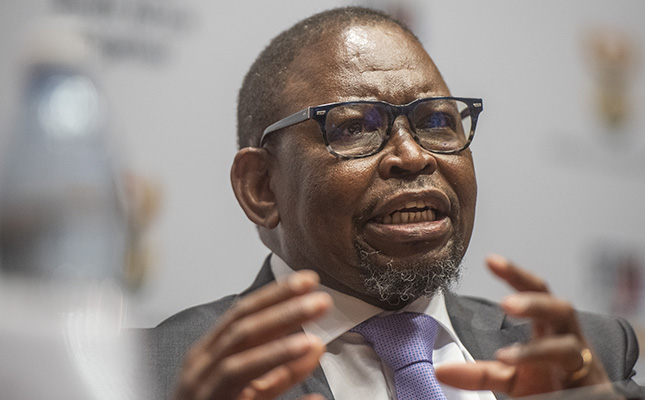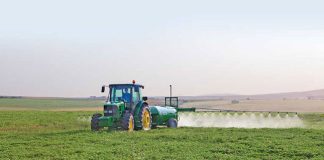
Photo: Brenton Geach/Gallo Images
During his maiden medium-term budget address in Parliament on Thursday, 12 November, Finance Minister Enoch Godongwana committed himself to accelerating economic reform for long-term economic growth in South Africa.
In the short term, however, farmers and agribusinesses will continue to lose out on opportunities due to the country’s poor infrastructure, difficulties experienced at its harbours, as well as rolling blackouts, according to industry stakeholders.
Christo Conradie, manager of wine business at Vinpro, said the minister’s statement was reassuring, but not necessarily inspiring.
“The right noises were made relating to debt, fiscal stability and a resolve to grow the economy, but load-shedding, port and infrastructural problems will not be solved overnight, and will continue to affect businesses and farmers in the short term.”
Conradie said he was pleased about the increased spending that would be directed to vaccine procurement “to keep the economy open”, especially in light of the losses suffered by the wine and liquor industry due to COVID-19-related liquor sales bans.
He also welcomed the additional funding that would be allocated to the South African Police Service to strengthen it in the fight against crime.
“We hope this funding will help to improve rural safety, and result in a clampdown on illegal liquor sales,” he said.
Conradie said he also welcomed Godongwana’s stance of “tough love” towards state-owned enterprises, but said it remained to be seen whether government had the will “to let go of those that are no longer considered strategically important”.
However, he expressed concern about the fact that the Land Bank was not mentioned in the address, and stressed that the entity was of great importance in terms of financing agricultural development, as well as established commercial farms.
Godongwana said government would be working on the details of measures to deal with the socio-economic challenges experienced across the country, between now and February 2022 when the national budget would be tabled in Parliament.
He called on the private sector, however, to fill funding gaps for various economic reconstruction and recovery plan projects, in an attempt to address the country’s unemployment crisis.
Bennie van Zyl, TAU SA’s general manager, said in a statement that government would have to “loosen the hands of the private sector” by creating a policy environment that inspired confidence, if it wanted this sector’s assistance.
“There is no more room for things such as expropriation without compensation and BEE [black economic empowerment] in such a business environment.”
Van Zyl added that government liked to make statements about structural reforms in the economy, without explaining what this meant.
“Is it to move towards centralised socialism […], or is it to make the necessary adjustments in an environment of private ownership and market-orientated economy, to create the necessary confidence for entrepreneurs to be positive and to become actively involved in the economy?”
Financial markets reacted positively to Godongwana’s address, with the rand firming by more than 1,5% to R15,30 against the US dollar by the morning of Friday, 12 November.












